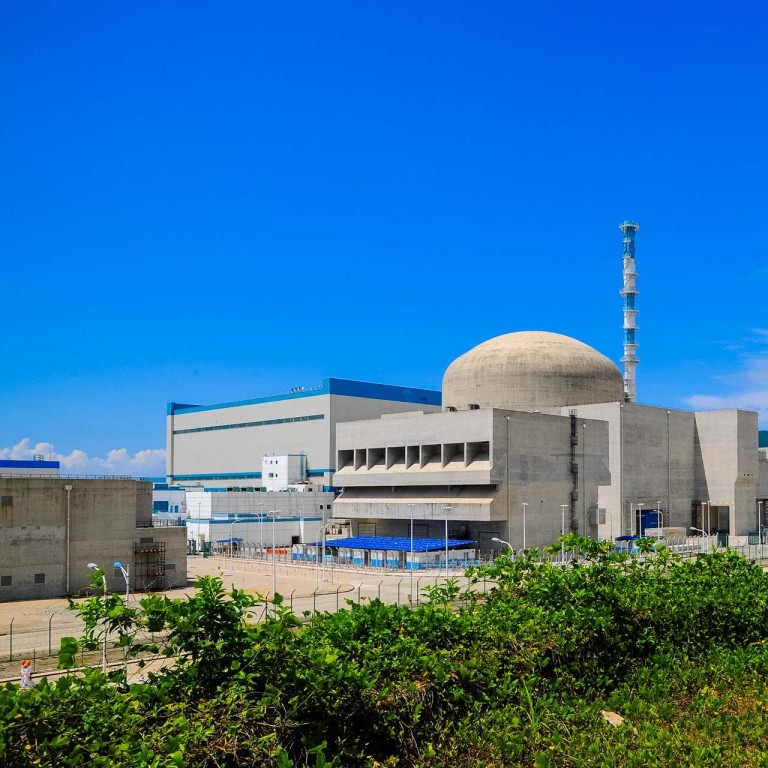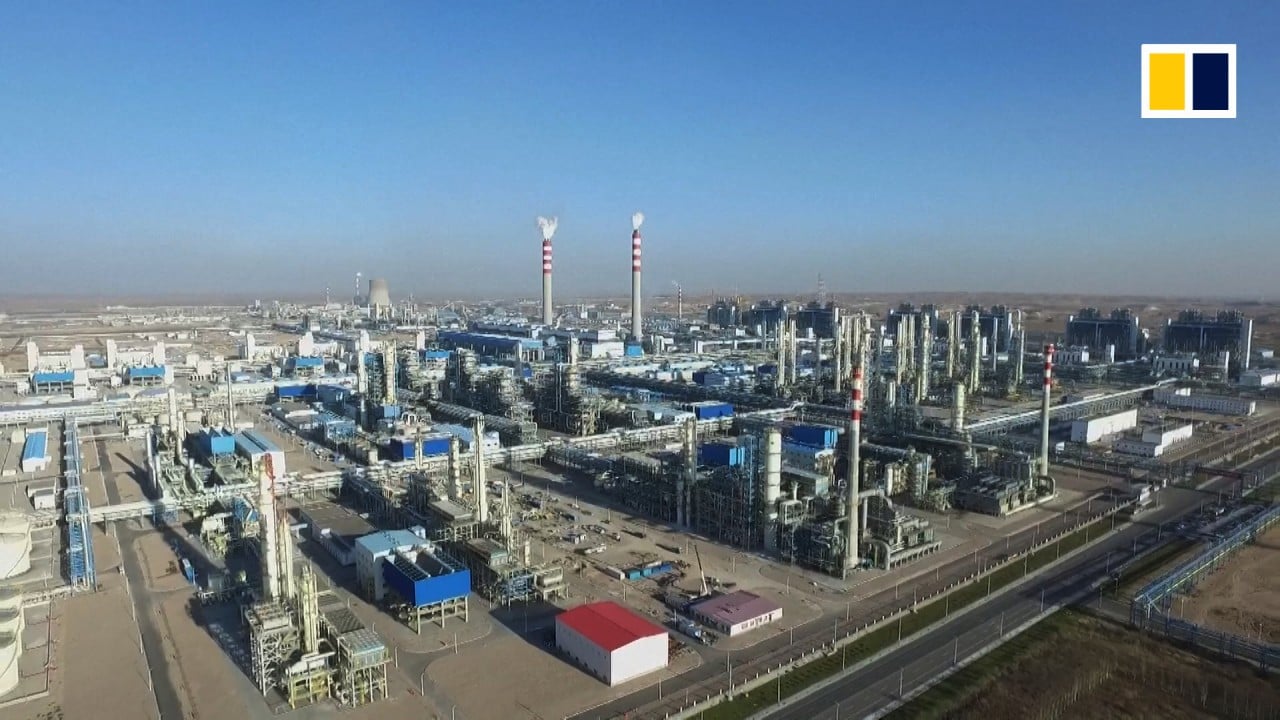
‘No abnormal radiation’: China says Taishan nuclear power station running safely
- Safety is guaranteed at facility, Chinese foreign ministry says after reports of a gas leak
- French stakeholder EDF says a build-up of noble gases affected the main circuit of reactor No 1
Radiation levels around a nuclear power plant in southern China are normal and the facility is running safely, Chinese authorities said on Tuesday.
“The Taishan nuclear power station has a good operating record … There is no abnormality in the radiation levels around the nuclear power plant and the safety is guaranteed,” foreign ministry spokesman Zhao Lijian said.
“China values nuclear safety highly and has established a nuclear safety regulatory system in line with international standards.”
Zhao’s comments followed a CNN report that French company Framatome last week asked the US Department of Energy for help to fix a gas leak at the plant.
Framatome, which has a small stake in the Taishan plant and helps in its operation, reportedly warned of an “imminent radiological threat”.
Framatome said on Monday that it was helping resolve a performance issue at the plant in Guangdong province but the facility was operating within safety parameters based on data available.
China’s Taishan nuclear plant ‘operating safely’, French firm says
Unlike the nuclear power station in Daya Bay which mainly supplies electricity for Hong Kong, the Taishan facility and others in Yangjiang mainly supply customers in Guangdong.
Framatome is a subsidiary of energy conglomerate Électricité de France (EDF), which has a 30 per cent stake in the Taishan plant. In a statement on Monday, EDF said it had asked for a special board of directors meeting to discuss the issue with the majority owner, Guangdong General Nuclear Power Group (CGN).
The EDF statement said a build-up of noble gases – krypton and xenon – had affected the main circuit of reactor No 1 at the Taishan plant, but it was a “known phenomenon, studied and provided for in the reactor procedures”.
It added that the build-up of inert gases could be because of an issue with fuel rods and seals. EDF did not respond to several requests for comment on Tuesday.
David Fishman, manager at energy-focused consulting group The Lantau Group, said fuel failures, or cracks in fuel rods, were common throughout the industry.
“The noble gases were created when uranium fissions inside of the fuel cladding. Normally it would stay as a gas inside the fuel cladding, but if you have a crack in the fuel cladding, it leaks out and gets into the cooling loop,” Fishman said.
“It’s not uncommon, but it’s not dangerous to have a cracked fuel rod.”
Fishman said operators normally would not shut down a reactor and refuel for cracked fuel rods. “You keep operating, and do a bunch of physics calculations to redistribute power in the core,” he said.
Experts said Framatome might have contacted the US because CGN was on a US government blacklist and it needed help from the US side.
“Framatome needs a waiver from the US government if there are US personnel and technologies involved,” said Lei Yian, an associate professor at Peking University’s physics school.
The US Department of Commerce put CGN on its “entity list” in August 2019, saying the nuclear power company and three of its subsidiaries allegedly “engaged in or enabled efforts to acquire advanced US nuclear technology and material for diversion to military uses in China”.
According to CNN, Framatome’s warning also included a claim that China’s nuclear safety watchdog, the National Nuclear Safety Administration, raised the acceptable radiation limits outside the Taishan plant to avoid having to shut it down.
But a Chinese industry source rejected the claim as irresponsible.
“In terms of nuclear safety, we have the highest standard,” said Wang Yingsu, secretary general of the nuclear power branch of the China Electric Power Promotion Council.
“China would not revise the radiation limit for its own purpose.”
China puts nuclear power, waste disposal on the front burner in bid to meet climate targets
The United Nations nuclear watchdog, the International Atomic Energy Agency, said on Monday that it was aware of the media reports and was in contact with its counterpart in China.
“At this stage, the agency has no indication that a radiological incident occurred,” the agency said.
According to real-time data published by the CNSA, radiation levels in the Taishan area were within the normal levels. Both watchdogs in Hong Kong and Macau did not report any unusual rise of radiation.
“Based on radiation monitoring by the Hong Kong Observatory, Hong Kong’s radiation level was maintained at the normal level for the past year,” the Hong Kong government said on Tuesday.
The Taishan plant, roughly 140km west of Hong Kong, has two units with a combined capacity of 3.3 gigawatts that entered commercial operation in 2018 and 2019. The first reactor in the Taishan nuclear plant was the world’s first operational EPR – a third-generation pressurised water reactor design – to enter service.
June Zhao, who was born in Taishan and works in Guangzhou, said she immediately contacted her family, classmates and friends back home when she heard about the news but was told that nothing abnormal had happened.
“I know some friends who work at the power plant and they told me everything is fine, and they promised that they would alert me if anything does happen,” she said.
But she said the government had released very little information.
“There’s nothing we can do, we can only trust the government, there’s no definite news yet, and that’s impossible for my family to move to another city,” she said.
China turns back to nuclear power as concerns over energy security rise
Dennis Ip, head of utilities and renewable research at Daiwa Capital Markets, said that the data available suggested the radiation levels were within the acceptable range but the information was limited.
“Perhaps a higher level of transparency is preferred to let people in surrounding areas to rest assured, including us in Hong Kong,” Ip said.
Additional reporting by Eric Ng and Guo Rui



